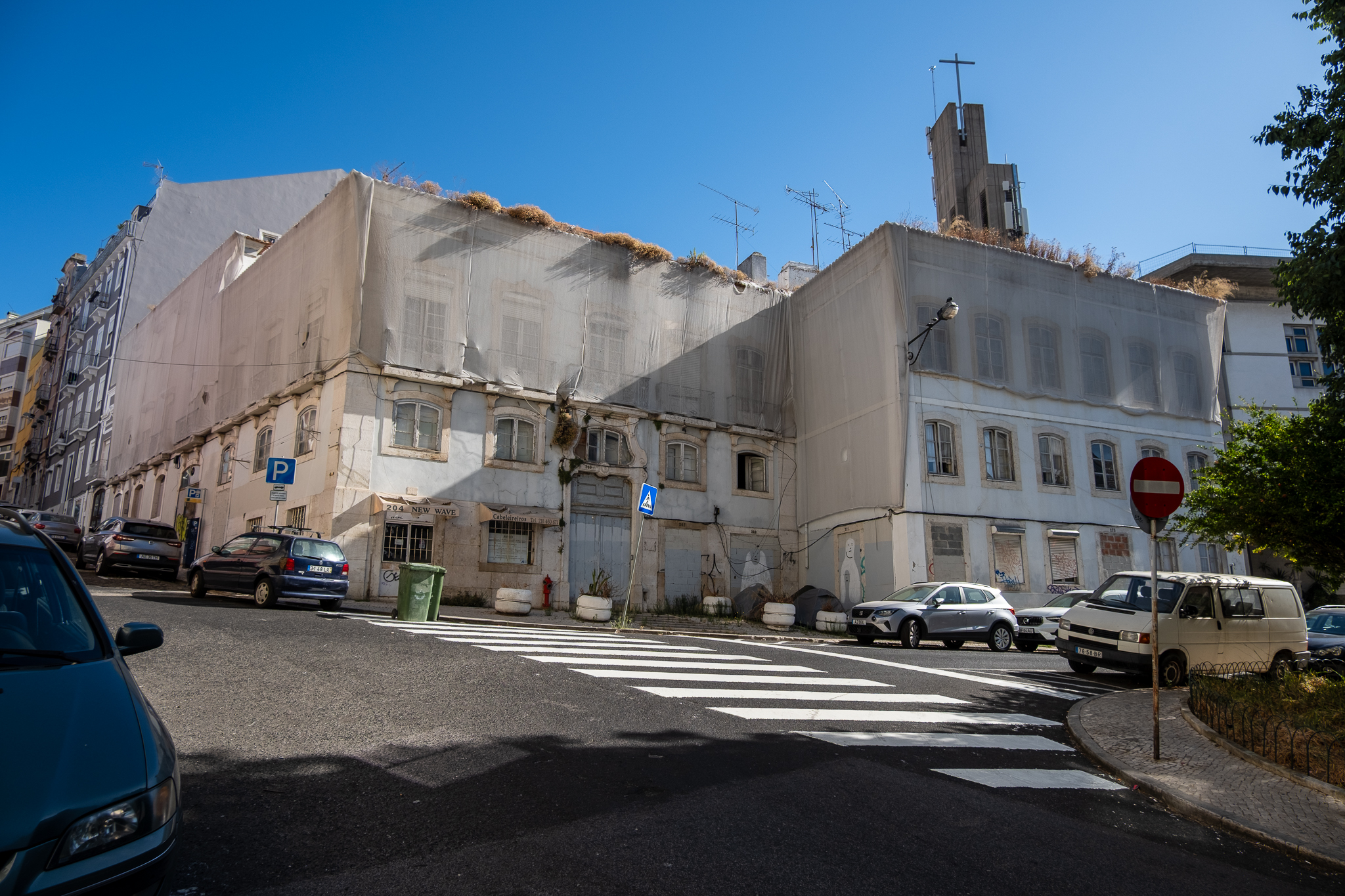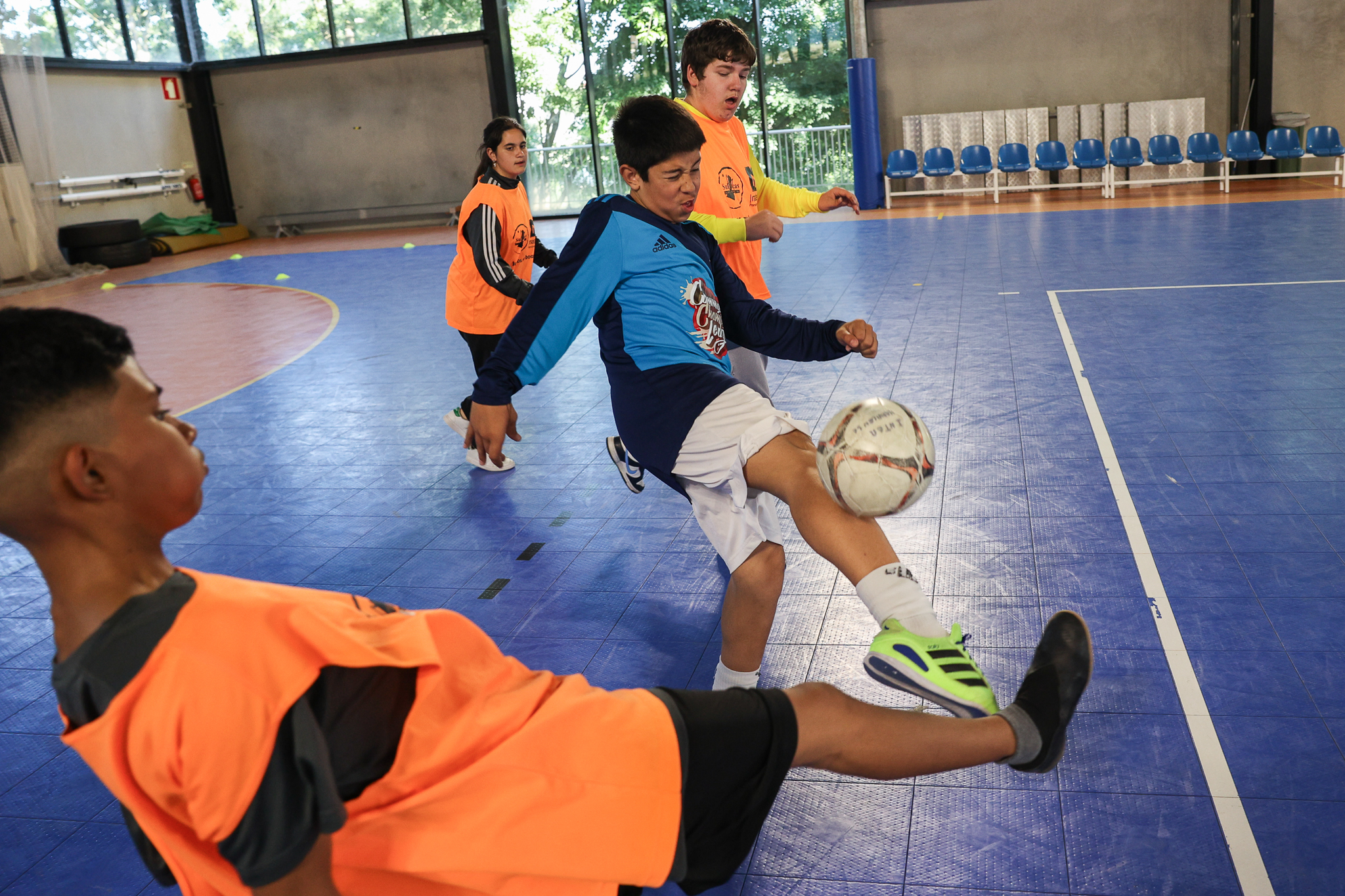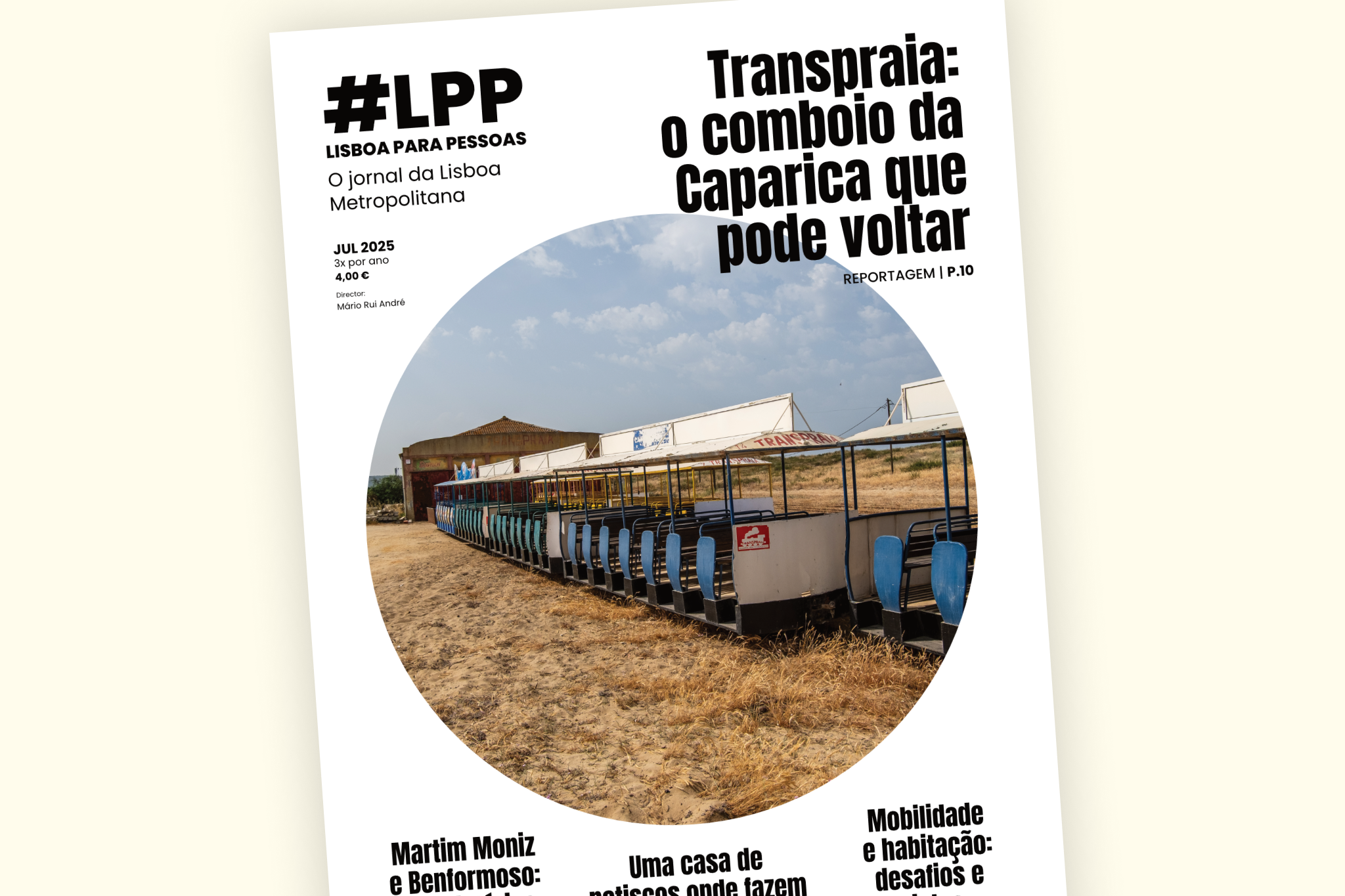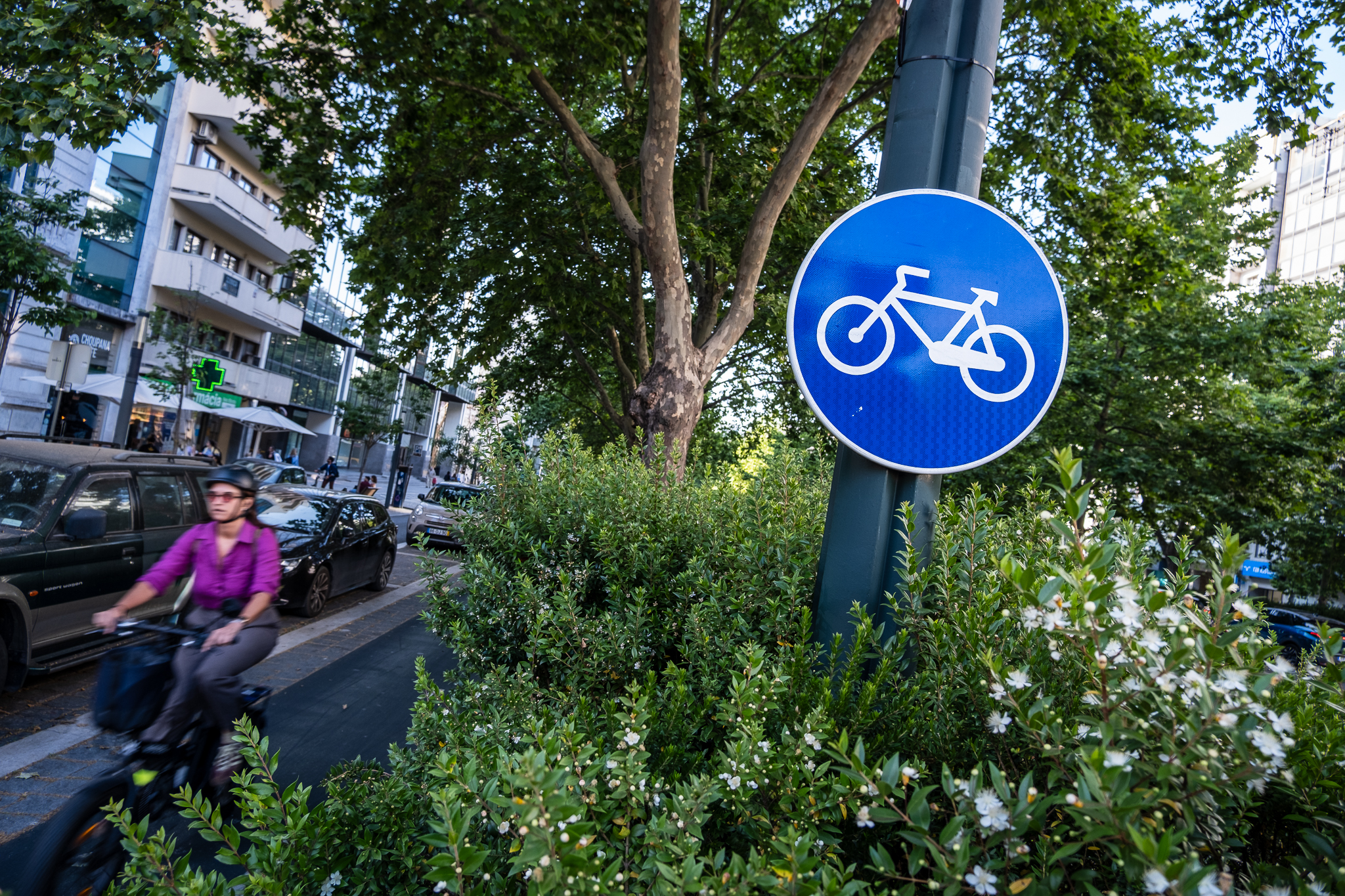Until recently, people with limited mobility had to book a train 12 hours in advance. In late July, CP reduced the required time to 6 hours. The company guarantees efforts both in terms of operation and rolling stock to eliminate this barrier by the end of 2023.

People in wheelchairs need to book their train travel at least six hours in advance via a pay phone number (808 100 746) or a free online form. That's what he did Diogo Martins to come and meet us at Benfica station, just as he does every time he needs to catch a train. "Whenever I want to travel, I have to go to the CP website and book the exact train I want to travel on." - tells us.
O available form asks for some personal data such as name, telephone contact, and disability type (it is not possible to log into the CP account and skip this step), and asks the passenger to indicate the exact departure and arrival times, as well as the two stations of his trip. From Diogo's perspective, this form could be simpler and ask to select the available service (as in the online ticket office) without having to fill in days, times and station names. But the friction doesn't end there. At the bottom of the form, in smaller letters, it reads: "CP advises to make the ticket purchase only after confirmation of the SIM provision. In case it is a round trip, or there is a need for transfer, make two SIM assistance requests."
SIM stands for "Integrated Mobility ServiceThis includes people with motor disabilities - as is the case of Diogo -, but also hearing or sight impaired, as well as elderly people with mobility impairments or even mothers with babies in arms. Since 2010, CP has been reducing the advance notice required for requesting SIM assistance: it went from 48 to 24 hours, then to 12, and in July it was reduced to six hours. The company expects that by the end of 2023 it will be possible to book the train on the spot, with no minimum advance notice. And only then will a person with reduced mobility be able to go to a station ticket office and ask to travel. Still, "you may not be able to do it on the next train, but on another one right after, for example"CP explains.

We traveled with Diogo and CP officials between Benfica and Oriente to understand the difficulties of people in wheelchairs on a train trip, and also to see how the SIM works on the ground. The train from Sintra arrived in Benfica at 10:26 a.m., the scheduled time; Diogo was positioned on the part of the platform where the carriage with space for wheelchairs usually stops; from inside, the conductor comes out, ready to operate the mechanical ramp by which Diogo can climb onto the train, overcoming the height between the train and the platform. The waiting time for the train at the station is not significant, and quickly the whole operation takes place and the train can continue its journey.
Everything went well, but Diogo tells us that it is not always like this. It has happened to him that the proofreader was not warned. "My personal trick is to position myself in the middle of the station and try to see where the reviewer is"he says. Diogo has to figure out where the proofreader is to make sure that he sees him and that he will assist him in boarding. "Theoretically all reviewers are warned, but sometimes..." There is no special place in the stations where wheelchair users can wait, nor are there any markings on the edge of the platforms of where the accessible carriages stop - CP explains that, if in general a certain service is almost always made by the same train, sometimes there are variations and there are also lines where different services/trains pass regularly. "I've never been stranded"Diogo guarantees, despite the difficulties he sometimes faces. "Some reviewers ask for confirmation" of the YES reservation, but "at the beginning they asked more often"guarantees. "I've started to notice that as younger people come in, what they want is for us to come in and for the journey to go on because they understand that it's our right."

Sometimes life changes us around and with Diogo it is no different. It has happened that I make appointments and then I can't make the trip. "There is no way to deselect"he says. It has also happened to him that he had to make a trip he hadn't planned to make, and in that case he had to ask at the station. "In Oriente it is easier because there is a CP Customer Support Office"but in other stations he tries to get by with the people at the ticket office, who "they only do please"reports. For CP, a last minute request implies communicating with the conductor that is doing the service in which the passenger with reduced mobility wants to travel, which even in a digitalized world like ours is still not the most agile process. The railroad operator explains to us that this is the reason why it is still unable to override the advance booking requirement. "We can't lighten the rules because our goal is to transport the customer and safely."
Getting to 0 hours ahead of schedule is CP's goal for the end of 2023, and to do that it will need to solve the communication challenge between the station and the train. "There will always need to be a warning"According to CP, the procedure may not be the same for the whole country. In the Lisbon Metropolitan Area, the company guarantees wheelchair assistance at all stations; this is also the case at 139 stations nationwide. In the remaining stations, there is SIM assistance but it is not possible to ensure the transportation of people with this type of mobility limitation. CP highlights its rolling stock renovation work in the so-called mid-life overhaul in which it adapted a series of urban trains in the Lisbon area for conditioned mobility and now wants to equip the 55 regional trains, which run on various lines throughout the country, with mechanical elevators that will allow wheelchair users to get on and off the carriages by overcoming the two door steps.


In 2010, the company created a Advisory Council for People with Special Needs (CCPNE) which integrates several relevant associations, namely ACAPO - Associação dos Cegos e Ambiopes de Portugal, the ADFA - Association of the Disabled from the Armed Forces, Non-Governmental Organization APD - Portuguese Association of the Disabled, APS - Portuguese Association of the Deaf, CNOD - National Confederation of Organizations of the Disabled and the National Institute for Rehabilitation and the Foundation LINKand also state-owned companies, such as CPthe Infraestruturas de Portugal (IP) and the National Institute for Rehabilitation (INR).
2016 data from the Ministry of Labor, Solidarity and Social Security indicate that there are 980 thousand people in Portugal with at least one difficulty who cannot walk or have great difficulty in walking. For its part, the Decree-Law No. 123/97, May 22requires the elimination of architectural barriers in public buildings, public facilities, and on the public highway to improve accessibility for people with mobility impairments, as well as in rail transport, including railway stations and leveled overhead or underground pedestrian crossings.
"Weigh though the significant improvements" arising from this 1997 law, "its practical application has been slow taking into account the large quantity of buildings and public equipment to be adapted, which has led to the persistence in Portuguese society of limitations to mobility resulting from the existence of urban and architectural barriers".according to an IMT report from 2017. "In the field of rail transport, the publication of that decree-law coincided with a very important set of modernization investments in the RFN [National Railway Network], namely in the Lisbon and Porto suburban lines and in the Braga-Lisboa-Faro axis, which privileged the introduction of accessibility conditions without physical barriers in the intervened stations."

When arriving at the Oriente station, Diogo Martins' descent is not made in the same way as the boarding at Benfica because this station has a greater distance between the platform and the train; using the ramp would give a slope that is not advisable for wheelchairs, so the mechanical elevators that exist at each platform are used. A CP employee operates them, as with the ramps; the elevator is placed against the train, Diogo climbs onto it and then descends. The process takes longer but there is no problem because the train's journey ends at this station. In fact, we traveled on a train of the Sintra Line that ends at Oriente, but this is not always the case: those of the Azambuja Line continue towards Loures, but the rolling stock that is usually on that service allows people like Diogo to board without difficulty, since the entrance of the train is at platform level. It's the same with the trains that run the Fertagus service between Lisbon and Setúbal. The new trains that CP is going to buy will already be properly adapted for reduced mobility, allowing any passenger to be independent.
A Convention on the Rights of Persons with Disabilities Article 20(a) states that the State must take "effective measures to ensure the personal mobility of people with disabilities, with the greatest possible independence, by facilitating the personal mobility of people with disabilities in the manner and at the time of their choice and at an affordable price". CP is moving in the direction of not needing to book journeys in advance, on a par with its European counterparts, equalizing in practice the rights of all passengers. Note that, at this moment, the railroad operator offers discounts of between 20 and 75% on all trips to people with special needs, "with the objective of minimizing the mobility difficulties of clients with conditioned autonomy".






